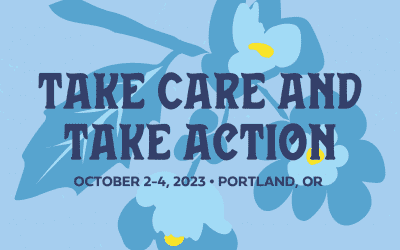
But if you feel you have to respond, be polite and stick to the facts.

By Allison Tomai Felsen
August 4, 2022
Ever heard the expression “don’t feed the trolls?” Maybe it was in a news article about the rise of clickbait posting and algorithms designed to show us content that pushes our buttons (yes, this definitely happens), or perhaps you heard it as a line in a movie or saw it as a popular meme. Regardless, we’ve all seen or experienced the dark side of social media in one way or another.
The reasoning behind the expression, “don’t feed the trolls,” is that if you just don’t respond to online comments or engage with the commenters—who are attention-seeking at best, or just downright horrible at worst—you aren’t enabling them.
Your knee-jerk reaction might be to disable comments or use the hide comment feature. And while sometimes those responses make sense, if you are trying to engage the public or create change, then you might stop, take a beat, and consider some alternate actions.
If you have gone through a branding process, it might be a good time to flip back to that section in your brand book where you specifically outlined your values and your voice. Give yourself a little refresh on the tone that you are striving to use when you engage people on social media. Is it polite and friendly? Is it more serious or humorous? A brand book or brand guidelines are really important as a quick reference for anyone working at your organization; they help keep your messaging to the public consistent with your brand.
Ok, back to negative comments. There are some platforms that are so large, they cannot moderate their comments, and if you have ever leapt down that particular rabbit hole, you probably wish you hadn’t. There are some comments that are just offensive, violent, or deliberately insulting, and there is no reason to engage with that commenter, so it is appropriate to hide those comments. In fact, Facebook gives you the ability to not only ban people from commenting but also turn on a profanity filter to block different words and phrases that have been marked as offensive by the Facebook community.
Now for the trickier part: addressing comments that you feel might benefit from some interaction. If the original intent of your post is to inform or affect change, then interacting with a commenter might help to learn more about the person behind the keyboard and why they have left that comment.
Here are a few tips in crafting your response:
- Don’t make it personal; stick to the facts.
- Be professional; politeness can often take the wind out of a negative commenter.
- Offer to take the conversation elsewhere; debating in the comment section attracts more comments and can quickly devolve into arguments with no one listening.
Sadly, no one is immune to negative or trolling comments on social media. The best you can do is be prepared to handle situations as they arise and be authentic to your brand. I’ll leave you with two of my favorite TED Talks that address how the speakers deal with their own negative online comments.
Empathy is not endorsement | Dylan Marron | TED
Don’t Feed the Trolls: How to Handle Jerks on Social Media | Emily Sutton
PHOTO CREDIT: BreizhAtao on Adobe Stock
Allison Tomai Felsen is a Communications Manager for Healthy Teen Network who provides design and communications expertise for projects and manages our website. Allison and her husband are proud parents of two pups and three cats. Read more about Allison.













